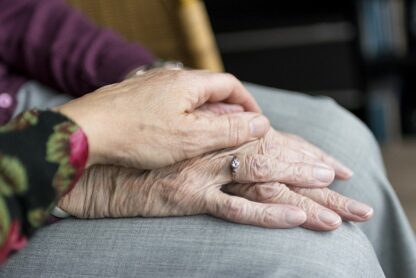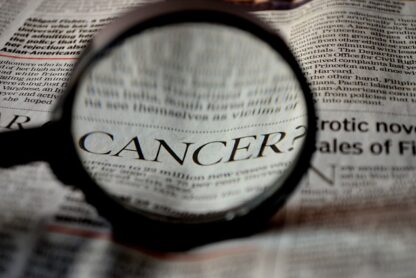Introduction
If you’re not eating enough protein, your body will start to show signs of deficiency. You may feel fatigue, have trouble losing weight, and experience weak muscles and bones. Here are some other possible signs of protein deficiency:
What is Protein?
Protein is a macronutrient that is essential for the human body. It is made up of amino acids, which are the building blocks of cells and tissues. The body needs protein to build and repair muscles, bones, skin, and hair. It also plays a role in hormone production and metabolism.
There are two types of protein: animal-based and plant-based. Animal-based proteins include meat, poultry, fish, eggs, and dairy products. Plant-based proteins include beans, legumes, nuts, seeds, and soy products.
The recommended dietary allowance (RDA) for protein is 0.36 grams per pound (0.8 grams per kg) of body weight. For example, a person who weighs 150 pounds (68 kg) should consume 54 grams of protein per day. Athletes or people who engage in strenuous physical activity may need more protein.
Protein deficiency is rare in developed countries like the United States but can occur in people who have trouble absorbing nutrients from food or who don’t eat enough calories overall. Symptoms of protein deficiency include fatigue, muscle weakness, thinning hair, brittle nails, and fluid retention. If you think you may be deficient in protein, talk to your doctor about ways to increase your intake through diet or supplements.
Why Is It Important To Eat Enough Protein?
If you don’t eat enough protein, your body will start breaking down muscle for energy. This can lead to muscle loss and weakness, as well as decreased immunity. Protein is also essential for proper growth and development in children and teenagers. Not getting enough protein can cause problems such as stunted growth, poor wound healing, and decreased muscle mass.
Signs You Are Not Eating Enough Protein
If you’re not sure whether you’re eating enough protein, there are some signs to look out for that may indicate you’re deficient. You may feel more tired than usual or have trouble recovering from workouts. You may also notice a decrease in muscle mass or strength, and you may get sick more often. If you suspect you’re not getting enough protein, talk to your doctor or a registered dietitian to find out how to increase your intake.
- Low Energy Levels
If you’re constantly tired and have low energy levels, it could be a sign that you’re protein deficient. Protein is an essential nutrient for the body, and not getting enough can lead to fatigue, muscle weakness, and other health problems. If you suspect you may be protein deficient, talk to your doctor about getting a blood test to check your levels.
- Difficulty Building Muscle
If you’re having difficulty building muscle, it’s possible that you’re protein deficient. Here are some signs to look out for:
- You’re not gaining weight.
If you’re not gaining weight, it’s a sign that your body isn’t getting enough of the nutrients it needs to build muscle.
- You’re losing muscle mass.
If you’re losing muscle mass, it’s a sign that your body isn’t getting enough of the nutrients it needs to maintain muscle.
- You have low energy levels.
If you have low energy levels, it’s a sign that your body isn’t getting enough of the nutrients it needs to sustain energy levels.
- Poor Recovery After Exercise
If you’re not seeing the results you want from your workouts, and you feel like you’re putting in the effort, it might be because you’re not getting enough protein. Protein is essential for muscle growth and repair, so without enough of it, your body can’t recover properly after exercise. That means your muscles don’t get stronger, and you can even start to lose muscle mass.
There are a few different ways to tell if you’re not getting enough protein. First, pay attention to how you feel after working out. If you’re feeling especially fatigued or sore, that could be a sign that your body isn’t able to recover properly. You might also notice that you’re not seeing the results you want in terms of muscle growth. If you’ve been lifting weights regularly but aren’t getting any bigger or stronger, protein deficiency could be the culprit.
Finally, look at your diet. If you’re not eating enough protein-rich foods, or if most of your diet consists of processed carbs and fats, then it’s likely that you’re not getting enough protein. To make sure you’re getting enough, aim for 0.36 grams per pound of body weight per day (so if you weigh 150 pounds, aim for 54 grams of protein). You can get this from food sources like meat, poultry, fish, eggs, dairy, legumes, and nuts; or through supplementation with a quality protein powder.
- Weak Immune System
If you find yourself constantly getting sick or your wounds take forever to heal, it might be a sign that you are protein deficient. A weak immune system is one of the most common signs of protein deficiency, since proteins are responsible for the production of antibodies, which help fight off infection. If you think you might be protein deficient, be sure to talk to your doctor – they can perform a simple blood test to check your protein levels.
- Poor Appetite Control
If you’re not eating enough protein, it can affect your appetite in a few ways. First, you may feel less satisfied after meals and be more likely to experience hunger sooner than usual. Additionally, your body may start breaking down muscle tissue for energy, which can lead to fatigue and a general feeling of weakness. If you think you may be protein deficient, be sure to speak with your doctor or a registered dietitian for more information.
- Slow Metabolism
A slow metabolism can be one of the most frustrating things when it comes to weight loss. You could be doing everything right – eating healthy, exercising regularly – but the scale just isn’t moving. If you think you might have a slow metabolism, here are some signs to look out for:
-You always feel tired, no matter how much sleep you get.
-You have trouble losing weight, or even gaining weight.
-Your hair is thinning, your skin is dry, and you’re constantly getting sick.
If you’re experiencing any of these signs, it’s important to talk to your doctor. There could be an underlying health condition causing your slow metabolism, and it’s important to get to the bottom of it.
- Hair Loss or Brittle Nails
If you’re not getting enough protein in your diet, you may start to notice some changes in your body. Your hair may become brittle and start to fall out, or your nails may become weak and break easily. You may also feel fatigued and have difficulty building muscle. If you’re experiencing any of these symptoms, it’s important to talk to your doctor about ways to increase your protein intake.
How Much Protein Do I Need?
If you’re not sure how much protein you need, a general rule of thumb is to consume 0.36 grams for every pound of bodyweight. So, if you weigh 150 pounds, you should aim for 54 grams of protein per day.
However, your protein needs may differ depending on various factors, such as your activity level and muscle mass. If you’re highly active or have a lot of muscle mass, you may need more protein than the general rule suggests.
There are several ways to determine if you’re consuming enough protein. One is to look at your diet and see if it contains a variety of proteins from different sources. Another is to monitor your energy levels and strength. If you find that you’re constantly tired or your strength is declining, it could be a sign that you’re not getting enough protein.
If you suspect that you might be protein deficient, talk to your doctor or a registered dietitian to get their professional opinion. They can help you determine how much protein you need and make sure that you’re getting enough from your diet.









